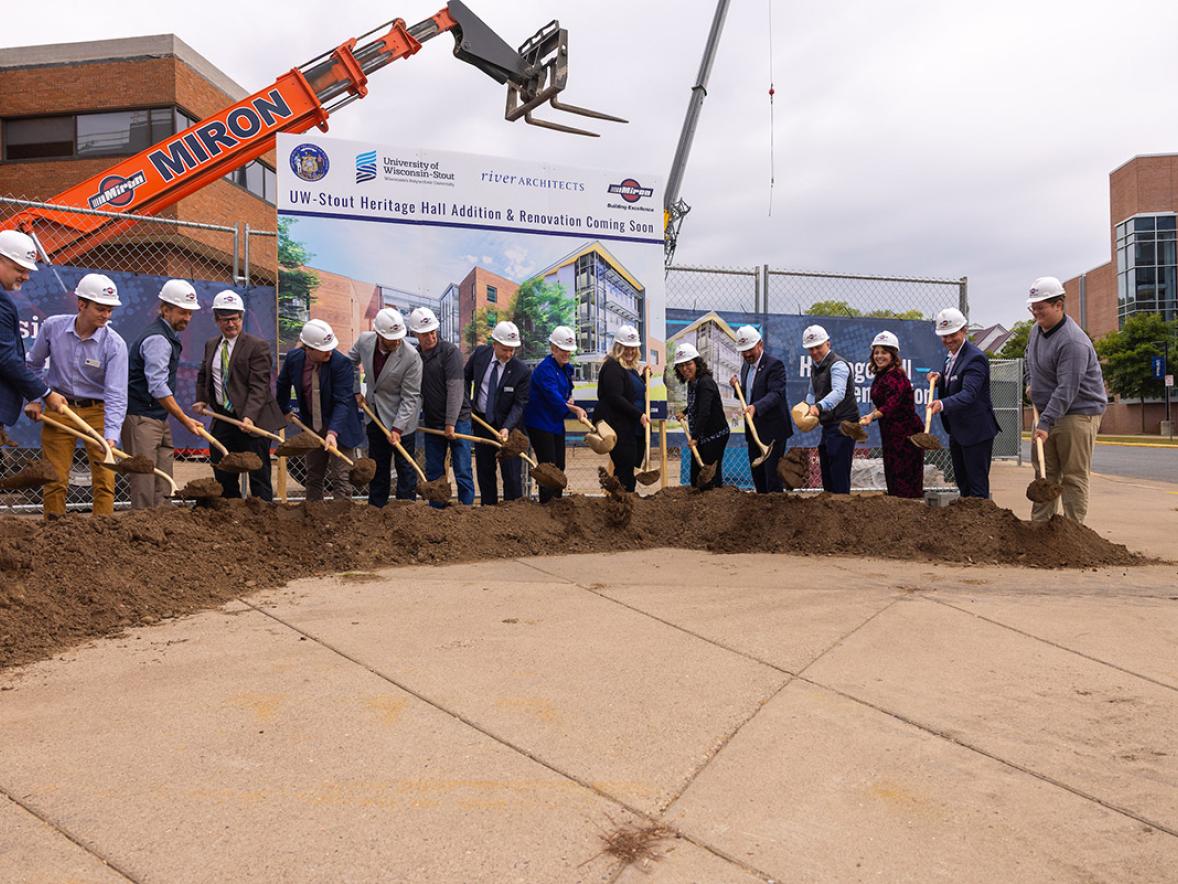Wisconsin’s calling card can be found all over the state. Vehicle license plates proclaim America’s Dairyland, and from Lake Superior to the Illinois border 6,300 dairy farms and 100 cheese factories dot the countryside — along with plenty of cheese shops.
All that cheddar, gouda, mozzarella and 600 more varieties make Wisconsin No. 1 in the U.S. for cheese production and boost it to No. 8 for food processing overall, according to the Wisconsin Economic Development Corporation. The state has 3,700 food and beverage companies employing more than 100,000 people, including operations for seven of the world’s 10 largest food manufacturers, such as Nestle and Kraft Heinz.
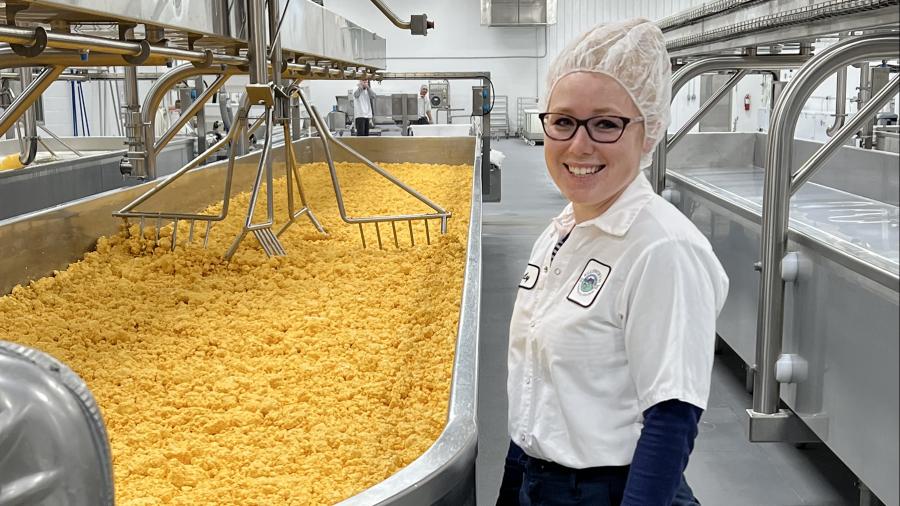
To grow the robust food production economy in a tight job market, Wisconsin needs every one of its 1,200 licensed cheesemakers but also much more. Filling one part of the industry’s skilled workforce needs are UW-Stout graduates — such as research and development leaders Nick Radzinski at Brakebush foods and Emily Maier at Ellsworth Cooperative Creamery — from the bachelor’s and master’s food science and technology programs.
“Food manufacturing is everywhere in Wisconsin,” Radzinski said.
Food science research and innovation are part of the state’s legacy, resulting in advancements “that have improved growing practices, increased distribution efficiency and raised safety and nutritional standards worldwide,” according to the Wisconsin Supplier Network.
Demand for food scientists is projected to grow 6% nationally through 2031, faster than the average for all occupations, according to the U.S. Bureau of Labor Statistics. It’s one reason why the major renovation of UW-Stout’s Heritage Hall, home of the food science programs and many others that support the state’s workforce needs, is so important.
The renovation, which will include updated food science labs and classrooms, received priority approval in 2022 from the UW System Board of Regents and is ranked No. 1 in the Chippewa Valley and No. 3 for UW System academic buildings.
Ongoing food science work at UW-Stout already supports the state’s economy:
- Assistant Professor Pranabendu Mitra recently expanded the Food Process Engineering Research Lab. Mitra is conducting research with students on sustainability in the fruit juice, soybean and brewing industries. One study involves cranberry pomace, a byproduct comprised of the seeds, skins and stems of the fruit. Wisconsin is the No. 1 U.S. producer of cranberries and has several Ocean Spray production facilities.
- Associate Professor Taejo Kim, who oversees food microbiology labs, has invented an inexpensive test kit for salmonella and listeria. Each summer, he trains state industry professionals at workshops.
- Professor Eun Joo Lee has conducted research related to food chemistry. She has especially focused on bioactive peptides produced from the egg protein (phosvitin); and mechanisms and prevention studies of quality changes of irradiated meats. Recently, she has been researching with students the development of meat alternative products using a 3D food printer.
In addition to the master’s and bachelor’s food science programs, UW-Stout’s Bachelor of Science program in packaging includes a food packaging emphasis.
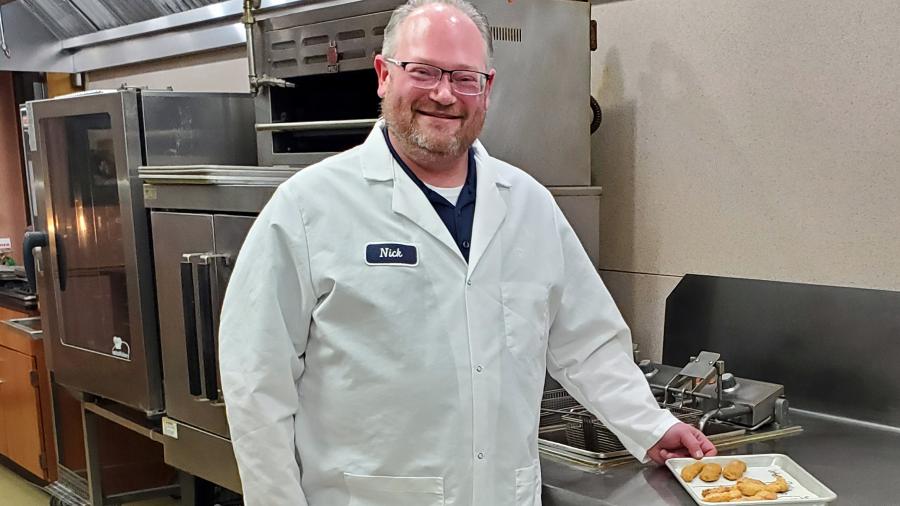
Graduates supporting state’s food economy
Program graduates like Radzinski, director of research and development at Brakebush based in Westfield; and Maier, quality assurance and product development manager at Ellsworth Cooperative Creamery based in Ellsworth, are two of many UW-Stout food science alumni who have added value to the state industry with their expertise.
Radzinski, a 2005 graduate and certified food scientist, oversees product development and the culinary program at Brakebush, a family-run company dating to 1925 that makes more than 150 chicken products and employs about 800 in Wisconsin, along with another 500 at plants in Minnesota, North Carolina and Texas. Brakebush processes about 10,000 pounds of chicken an hour.
The company’s products are sold to food manufacturers and food service distributors around the state and country, such as nuggets, breaded and grilled fillets and wings to restaurant chains; diced chicken to state pizza manufacturers; or even custom-designed product applications for customers like the Fox Cities Stadium, home of the Wisconsin Timber Rattlers Baseball team.
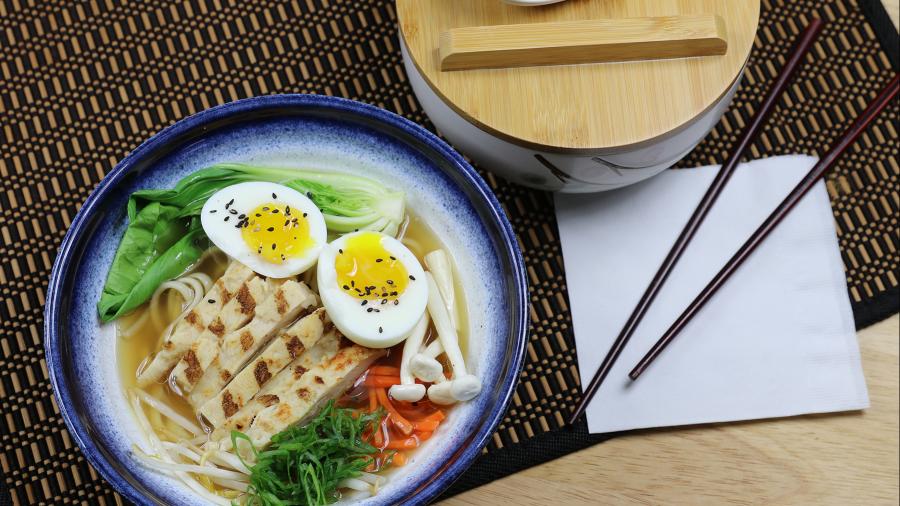
Brakebush’s operations also support other state companies. It buys potato starch, corn flour and spices made in Wisconsin, for example. “There are so many industry partners in Wisconsin it’s crazy,” Radzinski said.
The influence of food science is everywhere too. “At every step of the food supply chain, someone could have a background in food science,” he said, citing farming operations, food safety, functional ingredients and even state manufacturers that make food service equipment.
Radzinski had two internships at Brakebush during his years at UW-Stout, leading to his full-time position. The food science bachelor’s program requires a field experience. “It’s critical to be able to dive into and understand what’s available in the workforce,” Radzinski.
Following in his footsteps is Lydia Kneubuehl, a junior from Madison who is a food science major pursuing a double major in computer science. She had an internship at Brakebush last summer and will return this summer. She would like to start her career there in R&D.
Kneubuehl enjoyed the professional setting, a culture that Radzinski helped establish. Radzinski said the scientific method, which includes isolating one variable at a time during research, was ingrained in him at UW-Stout and now is part of his team’s mindset.
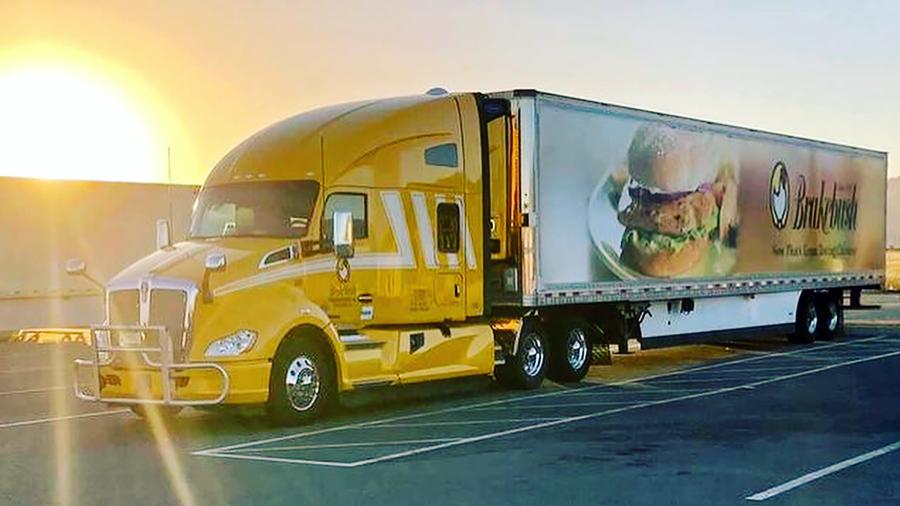
“I had so many science classes where that’s the model you followed. That’s the right methodology,” he said.
Kneubuehl worked on three projects: developing a product of her choice, testing active ingredients to measure the effect on cooked chicken; and developing a product for Brakebush’s signature product line.
“I think that developing a new product that eventually does hit the market would be especially rewarding,” she said.
Kneubuehl said most people don’t realize the strength of the food science field, and Radzinski agreed. “There are so many openings and opportunities to become a food scientist,” said Radzinski, adding that he has four other food scientists on his R&D team.
Radzinski has served on the UW-Stout food science program advisory committee going back to his days as a student. He is a member of the Wisconsin chapter of the Institute of Food Technologists.
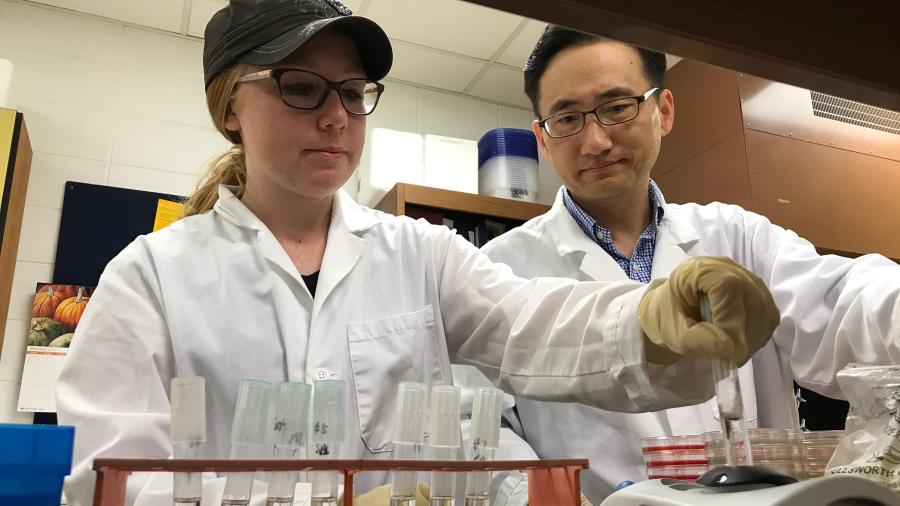
Maier, a native of Chippewa Falls, earned a bachelor’s in animal science, with a food science and chemistry minor, in 2017 from UW-River Falls. She started working at Ellsworth Cooperative Creamery as an intern in 2016 and full time in 2017. She earned a food science master’s in 2022 from UW-Stout.
She is responsible for leading the quality team across all plants, including a new one in Menomonie, to ensure food safety and also oversees R&D. Ellsworth Cooperative Creamery is known for its cheese curds, claiming the title of curd capital of the state.
“A lot of the laboratory techniques that I learned at UW-Stout when completing my thesis research are practices I use whenever completing lab work,” she said. “I liked the hands-on learning opportunities in the classes with labs that you could not get from taking a strictly online master’s program as well as the research opportunity I had while completing my thesis.”
Classes such as Food Microbiology, focusing on spoilage and causes of food poisoning, and Food Law helped Maier develop a deeper understanding of the industry. The Food Law course “very closely related to my current line of work. It was interesting reviewing the history of how food laws came about along with cases that caused regulation changes,” she said.
###







